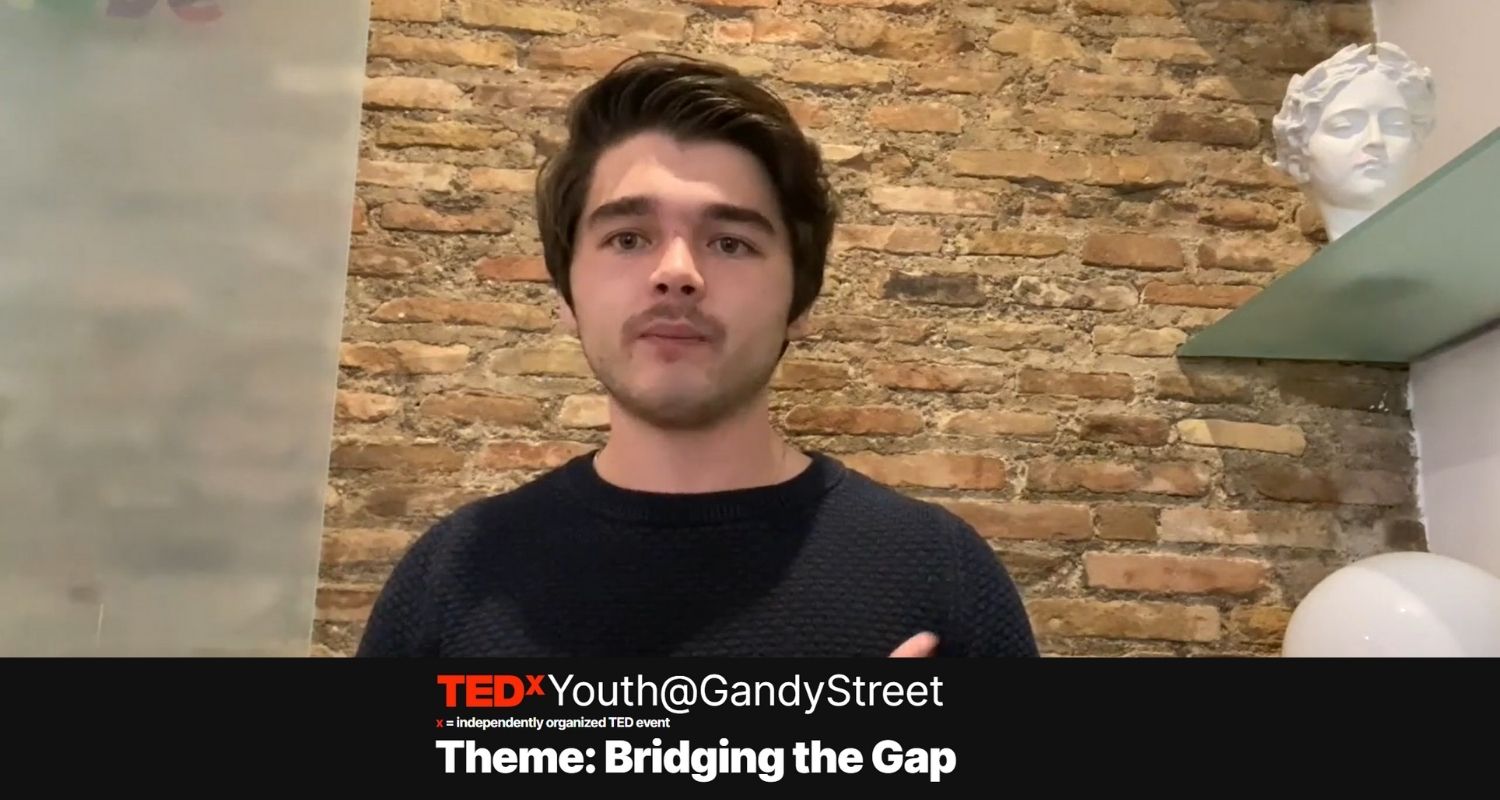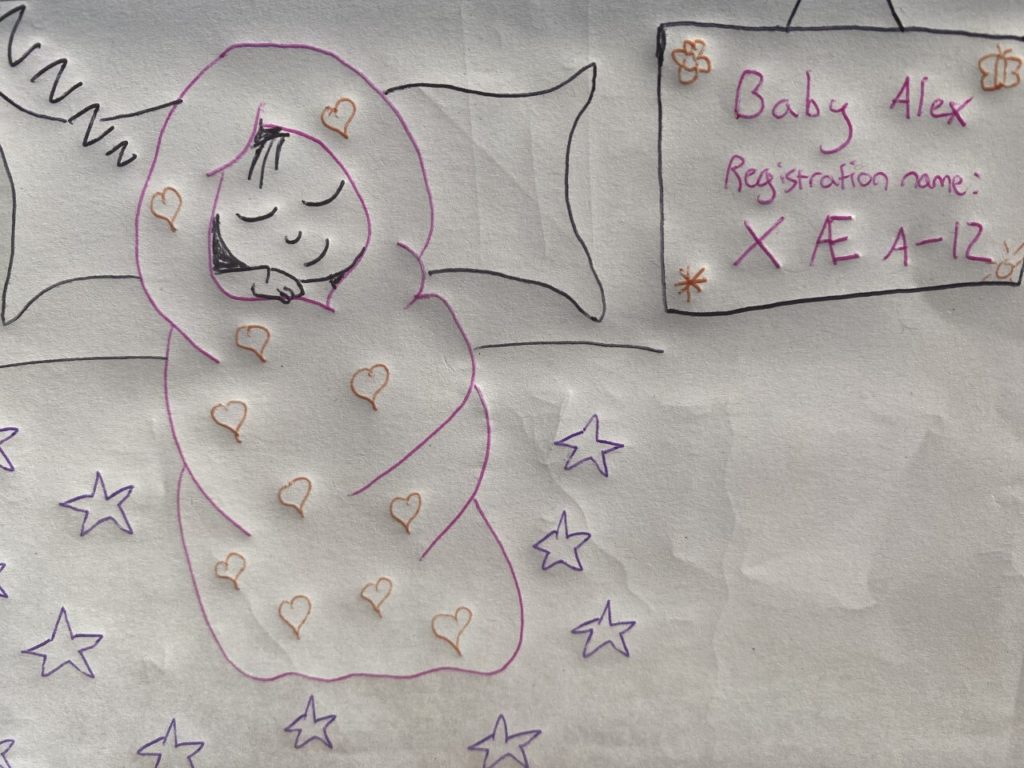

Written by Connor Wright, MAIEI researcher and research intern at FairlyAI. He is also a Philosophy student at the University of Exeter.
This is an edited transcript of Connor’s TEDxYouth@GandyStreet talk (video below). TEDxYouth@GandyStreet is an independently organised TEDx event based in Exeter, England.
With the theme of “bridging the gap”, I decided to base my TEDx Youth talk on bridging the gap between the public and the AI debate. Given that AI is often thought of as something reserved for killer robots, I wanted to show how AI in its current format could potentially achieve far worse than a killer robot ever could. To do this, I presented AI in the form of algorithms being applied to different aspects of human life, before launching into my argument. Here, after I compared the current AI situation to a novel in progress, I mentioned two negative consequences of the public not getting involved: a lack of diversity in the AI building process and a lack of pushback. I’ll now walk you through how this took shape.
With AI still being firmly in its developmental stage, I compared the current AI situation to a novel in progress. In this sense, those who take a lead in writing this story (such as big corporations) can have the luxury of determining the storyline society is to follow, the scene the storyline takes place in, the quest directions that society is to undertake, and more. AI is still currently a story to be written, malleable to the norms and practices for whoever sees fit. As a result, like characters in a novel, society will participate in whatever circumstances have been set for them by those designing the AI. Here, people may seem to have autonomy in terms of how they go about your quests and whom they interact with, but ultimately, their path has a fixed number of potential outcomes. Those writing the novel (comparable to authors) have already pre-set the story, and society is to conduct itself accordingly.
This story currently being written will affect all the characters contained within it. The decisions made by big corporations designing AI will affect everyone in our community, who are currently not involved in these decisions. In this sense, if we as the public do not get involved in the AI debate, we will become passive characters in the AI novel currently being designed for us. Choosing not to get involved means we cede control over the environment, the journey, and ultimately how this novel is to end, to somebody else. In this way, I argued that It was time to become co-authors. Without doing so, the AI storyline we will all adhere to will be designed according to somebody else’s vision.

For example, take the cartoon I designed. Here, you can see a baby resting nice and snug on the bed, snoozing away. What you also see is a sign with its name on it, saying Baby Alex and also a name registration number “X AE A-12”, the famous name used by Elon Musk and Grime to name their new-born. This type of baby labelling system could be something that becomes part of our future as according to someone else, this makes an effective system for having an exact number for the Earth’s population. In this way, leaving the AI storyline to someone else’s desires will result in decisions we may not comfortable with, yet have to endure.
This example was just a taste of what I believe could potentially unfold. The discomfort felt by some members of the public surrounding this decision is a direct result of the main problem with us not getting involved in the AI debate. For why this is the case, I appealed to the inability of big corporations and governments to adequately represent all the different walks of life (and opinions) society possesses. By the wider public not having a say in how the AI storyline is to be written, the essential component of diversity, is lost. The novel is then left with a finite amount of options for society to choose from, which may not be conducive to societal flourishing.
For example, in order for a novel to be a truly huge success, it needs to be translated into several languages. The corporations and governments currently authoring the AI novel could have a wide variety of languages present, whether it be French, Swedish, Spanish or Russian, and thus be able to translate the novel accordingly. However, this AI novel would mean nothing to those who solely speak a native African language, such as Zulu. Without the diversity of experience and culture that society’s participation can bring, it is unlikely that the AI novel being written for us will take what’s important to society, into account. Without this perspective, the plethora of different walks of life present within the greater public cannot be taken into account by a finite number of authors. In this sense, without the diversity of experience that the public can bring, the AI novel currently being written will not adequately represent the different walks of life society currently holds.
However, I asked myself why can we not just trust those who are currently authoring the AI novel, just like we entrust a government, medical institution or business? Well, I held that the answer lay in pushback. As in professional writing, feedback, scrutiny and peer-reviews are required to ensure a more refined and less error-prone output. With our participation in the process, our feedback would be able to provide a more inclusive and polished model. However, as it is currently written, I noted how this AI novel is not destined to be peer-reviewed. Whether the public is able to get involved or not, the norms, practices, and boundaries of the novel we will all live in, will be determined. Without bridging the gap between the public and the AI debate, the public will not have any say in the norms and practices that are set and that they are to adhere to. It is through pushback that the diversity needed to ensure adequate representation of all of society within the novel is brought to light.
Without this pushback and the resultant lack of diversity, an author hive mindset could be created. For example, from a solely technical point of view, the establishment of self-driving cars is a no-brainer. It has the potential to dramatically reduce the likelihood of road traffic accidents and save countless lives. However, from a humanistic approach, some may not feel as comfortable in the cars without a human behind the wheel, which although paradoxical to some, is a completely legitimate interest someone may have. By the public becoming involved in the debate, such considerations will be able to feature in the minds of those who are writing the AI novel. Without the wider public bringing this to the fore, the novel we will all live in will be designed on somebody else’s terms, whether it takes into account what’s important to us or not.
I then introduced potential avenues on how the public could get involved in the debate today. By engaging in the current AI literature (with topics spanning ethics, privacy, the futures of different jobs), a base understanding of the challenges at hand can be formed, allowing society to generate valid and helpful opinions. From this common engagement, getting stuck into dialogue with people from all different backgrounds to get their perspective will help open our own eyes to considerations and assumptions we ourselves are making. By doing so, the public would be able to get a clearer picture of the experiences contained within it and be better able to communicate this in the AI debate at hand, whether through workshops available from different organisations, or discussion groups on the recent releases. In this sense, the public’s role in the AI debate is to have a say in how the environment they will live in will be shaped. By co-authoring this current AI novel in progress, the public will help generate an accurate picture of what is to form part of the AI environment being designed, rather than an environment according to a small number of authors.
To conclude, the public has a role to play in the AI debate. AI will change the future we live in, whether we play a part in how this is done, or not. Co-authoring the rapidly evolving novel that is AI through engagement in the literature and discussion, will start the vital, but windy process of bridging the gap between the public and the AI debate. On that note, your experiences are vital. Let them be heard.
